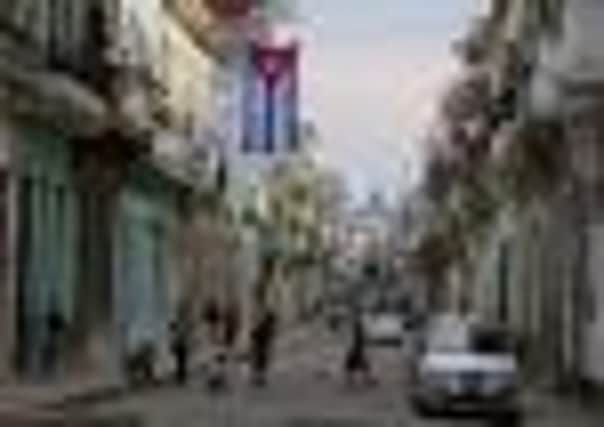Cuba loosening state control to allow home ownership


The law, which takes effect next Thursday, applies to citizens living in Cuba and permanent residents only, according to state media.
The law limits Cubans to owning one home in the city and another in the country, in an effort to prevent the accumulation of large property holdings. It requires that all real estate transactions be made through Cuban bank accounts so that they can be better regulated.
Advertisement
Hide AdAdvertisement
Hide AdSales will also be subject to an 8 per cent tax on the assessed value of the property, paid equally by buyer and seller.
“This is a very big step forward. With this action the state is granting property rights that didn’t exist before,” said Philip J Peters, a Cuba analyst at the Lexington Institute in Arlington, Virginia. “If you think about it from the point of view of a Cuban family, it converts their house from a place to live into a source of wealth or a source of collateral. It’s an asset that can now be made liquid.”
Though the details of the changes was available online, few Cubans have access to the internet and most were waiting for a booklet to go on sale at kiosks around the country. On the streets of Havana, residents said they were thrilled by the news but anxious to see the details.
“This is going to help me because I have some money and now I will be able to buy a better house,” said Oscar Palacios Delgado, a 68-year-old office maintenance worker.
Cuban exiles will not be allowed to purchase property on the island since they are not residents. They will, however, be able to send money to help relatives buy new homes, and there was speculation some might try to buy homes through frontmen.
The change follows October’s legalisation of buying and selling cars, though with restrictions that still make it hard for ordinary Cubans to buy new vehicles.
Mr Castro has also allowed citizens to go into business for themselves in a number of approved jobs – from party clowns to food vendors to accountants – and has pledged to streamline the state-dominated economy by eliminating half a million government workers.
Cuba’s government employs more than 80 per cent of the country’s workers, paying wages of £12.50 a month in return for free education and health care, and nearly free housing, transportation and basic foods. The president has said repeatedly that the system is not working since taking over from his brother Fidel in 2008, but he has vowed that Cuba will remain a socialist state.
Advertisement
Hide AdAdvertisement
Hide AdSome Cubans have bemoaned the ban on property sales, which took effect in stages over the first years after Fidel Castro came to power in 1959.
Since no property market was allowed, the rules have meant that for decades Cubans could only exchange property through complicated barter arrangements, or through black-market deals where thousands of dollars changed hands under the table,.
Some Cubans entered into sham marriages to make deed transfers easier. Others made deals to move into homes ostensibly to care for an elderly person living there, only to.
According to state media, the new law will eliminate the need for approval from a state housing agency, meaning that from now on sales and exchanges will only need the seal of a notary.